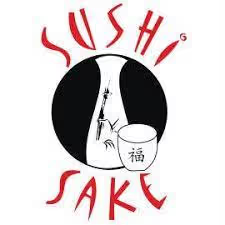Sushi Sake operates restaurants that serve a variety of Japanese dishes, including sushi and teppanyaki-style meals. The franchise offers a fun dining experience, with the option to serve both traditional sushi and interactive teppanyaki cooking for an engaging meal.

Key Insights
- Sushi Sake was created to bring much-needed innovation and professional standards to an industry that required modernization, focusing on developing scalable systems and processes that ensure consistent quality while adapting to local market conditions and customer preferences.
- Menu development balances signature dishes that define restaurant identity with customer favorites and seasonal offerings, incorporating feedback and market trends while maintaining the quality and consistency that build customer loyalty and positive reputation.
- Demographic shifts create new customer segments with distinct needs and service preferences, requiring businesses to adapt their offerings while maintaining core quality standards, creating opportunities for growth through market diversification and specialized service development.

Franchise Fee and Costs to Open
Exploring the financial picture of Sushi Sake gives insight into both the upfront commitment and the potential revenue opportunity. According to FDD Item 7, opening this franchise typically involves an investment in the range of $464,103 - $1,324,175, along with a franchise fee of $40,000 - $40,000.
Financial Performance and Revenue
Training and Resources
Sushi Sake provides comprehensive initial training for new franchisees, lasting four weeks and conducted at their headquarters. This program covers essential operational procedures and brand standards. Sushi Sake offers a detailed operations manual and access to ongoing support resources. The franchisor recommends a structured approach to learning and implementation to ensure a smooth launch of their Sushi Sake establishment.
Legal Considerations
Legal considerations for a Sushi Sake franchisee are defined by the Franchise Disclosure Document (FDD) and the Franchise Agreement. This franchise does not disclose lawsuits or bankruptcy information in its FDD, but prospective franchisees should still review all terms thoroughly. Consultation with a qualified attorney is essential before making commitments.
Challenges and Risks
A franchisee might encounter considerations regarding established local Japanese restaurants, requiring a focus on differentiating their offering. Managing the intricate daily preparation of fresh ingredients and maintaining consistent quality across all menu items presents an operational focus. Furthermore, securing a reliable and consistent supply of high-quality seafood, essential for the brand's reputation, is a key logistical consideration.



